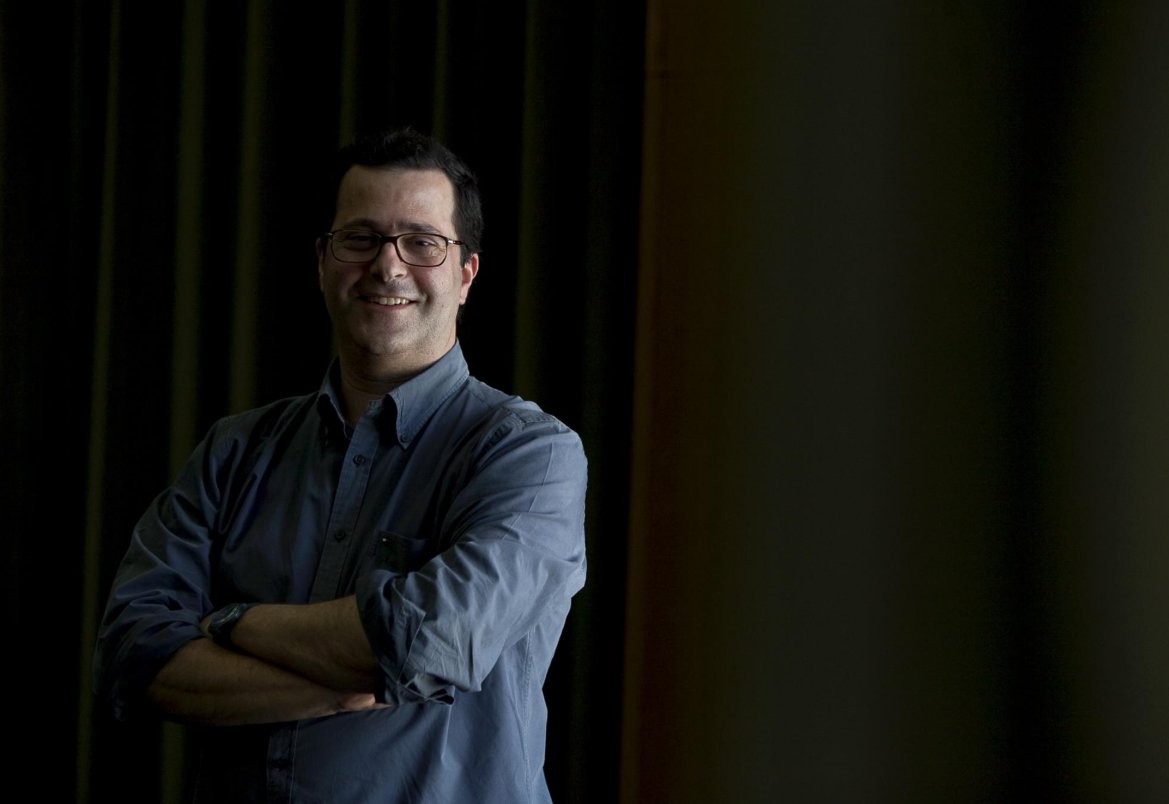Henrique Leitão ganha ERC Advanced Grant
28 março 2019

O CIUHCT dá os parabéns ao seu investigador Henrique Leitão, que acaba de receber uma European Council Research (ERC) Advanced Grant, no valor de dois milhões de euros, no âmbito do projeto “Making the Earth Global: Early Modern Nautical Rutters and the Construction of a Global Concept of the Earth” (RUTTER).
O objectivo do trabalho "é estudar os primeiros roteiros de navegação portugueses e espanhóis, que são os primeiros documentos europeus, e possivelmente do mundo, que mostram informações sobre ventos, correntes, geomagnetismo e outros, à escala do planeta, para perceber como essa informação gerou a conceção da Terra como um mundo global".
Em causa está o estudo de muitas centenas de documentos, sendo certo que muitos não são sequer ainda conhecidos. "Com o nosso trabalho pretendemos fazer esse levantamento global, e depois estudar esta documentação de uma forma que nunca foi estudada", sublinhou o investigador ao Diário de Notícias.
Até agora estes roteiros foram estudados apenas como documentos de navegação, e agora trata-se de estudar a forma como eles foram analisados na própria época e perceber como, a partir daí, emergiu a ideia da Terra como um mundo global.
Esta é segunda bolsa ERC no CIUHCT, seguindo-se à atribuição, a Joaquim Alves Gaspar, de uma Starting Grant (bolsa de arranque), no valor de mais de um milhão de euros, no projecto "The Medieval and Early Modern Nautical Charts — Birth, Evolution, Use" (Medea Chart). Henrique Leitão é também parte da equipa deste projecto.
A existência de dois projectos financiados pelo European Research Council numa única unidade de investigação é facto excepcional em Portugal, e confirma o desenvolvimento de uma investigação CIUHCT que é referência a nível internacional. Henrique Leitão é membro do centro desde a sua fundação, em 2007, e tem sido fundamental para a afirmação desta cultura de excelência. Agradecemos-lhe o notável trabalho já realizado, e desejamos-lhe sucesso continuado nesta nova aventura.
Sinopse do projecto (em inglês)
Early modern nautical rutters (sailing directions) are the earliest Western documents that testify to the stableand regular lived experience of traversing the earth’s oceans on a global, planetary scale. Nautical rutters (and ship’s logbooks) are technical documents that collect and analyse critical information for the successful accomplishment of oceanic navigation. This includes elements of strict nautical nature (courses, distances, and latitudes), as well as information on oceanography (currents and tides), meteorology (winds and storms), geography, geophysics (magnetic declination) and the natural world. Their unique value lies not only in the fact that they are exceptional historical repositories of information about the world on a planetary scale but, more importantly, that they document the emergence of global concepts about the earth. In fact, no earlier documents contain information about the earth on a comparable worldwide scale. Thus, their historical value is peerless. Using these exceptional, yet poorly known sources, the main objective of this project is to write a narrative of the scaling up of a scientific description of the earth in the sixteenth and seventeenth centuries,from the lived experience of travelling and observing the earth in long-distance sea voyages. As a preliminary task, a systematic search, identification and classification of the information contained in early modern Iberian rutters and ship’s logbooks will be performed. This will be followed by an extensive multidisciplinary study aiming at radically improving our present knowledge of the historical process that led to the formation of global concepts about the earth.